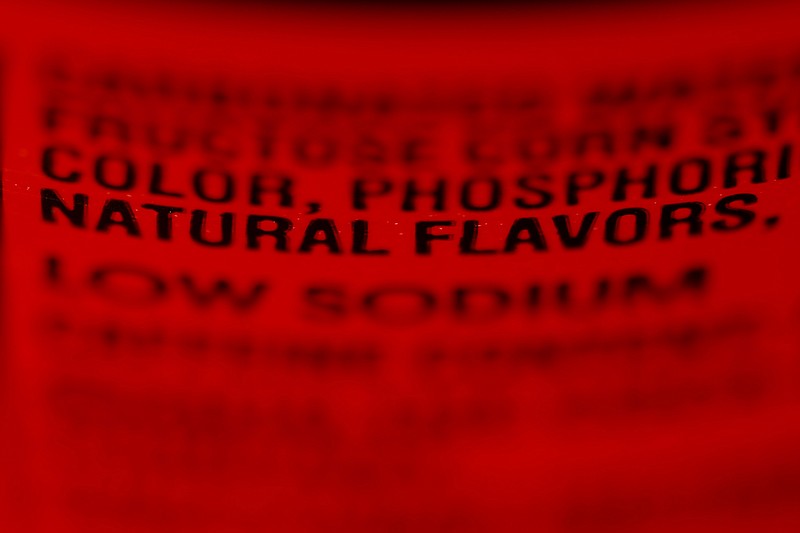No accounting for 6 artificial tastes
Six artificial flavors are being ordered out of the food supply in a dispute over their safety, but good luck to anyone who wants to know which cookies, candies or drinks they're in.
The dispute highlights the complex rules that govern what goes in our food, how much the public knows about it, and a mysterious class of ingredients that has evolved over decades largely outside of public view.
On food packages, hundreds of ingredients are listed simply as natural flavor or artificial flavor. Even in minute amounts, they help make potato chips taste oniony or give fruit candy that twang.
"The food system we have is unimaginable without flavor additives," said Nadia Berenstein, a historian of flavor science based in New York.
The flavors are also at the center of a dispute over how ingredients should be regulated.
The U.S. Food and Drug Administration is giving companies two years to purge their products of six artificial flavors - even though the FDA made clear it believes the ingredients are safe in the trace amounts they are used.
The six artificial flavors in question, with names like methyl eugenol, benzophenone, ethyl acrylate and pyridine, are used to create cinnamon or spicy notes, fruity or minty flavors, or even hints of balsamic vinegar.
Juul ends flavored e-cigarette sales
The nation's leading e-cigarette maker is halting store sales of some flavors to deter use by kids.
The move by Juul Labs Inc. comes ahead of an expected U.S. government crackdown on underage sales of flavored e-cigarettes.
Juul said it stopped filling store orders Tuesday for mango, fruit, creme and cucumber pods and will resume sales only to retailers that scan IDs and take other steps to verify a buyer is at least 21. It said it will continue to sell menthol and mint at stores, and sell all flavors through its website.
The company also said it would close its Facebook and Instagram social media accounts, and pledged other steps to make it clear that it doesn't want kids using its e-cigarettes.
Its products are meant to help adult smokers quit regular cigarettes, CEO Kevin Burns said in a statement.
"We don't want anyone who doesn't smoke, or already use nicotine, to use Juul products," Burns said. "We certainly don't want youth using the product. It is bad for public health and it is bad for our mission."
E-cigarettes are battery-powered devices that turn liquid often containing nicotine into an inhalable vapor. They're generally considered a less dangerous alternative to regular cigarettes, but health officials have warned nicotine is harmful to developing brains.
Johnson Controls sells power division
Johnson Controls International PLC is selling its power solutions division to Brookfield Business Partners LP for $13.2 billion.
The power solutions business, which makes and distributes advanced battery technologies for various vehicles, posted $8 billion in revenue in fiscal 2018.
Johnson Controls CEO George Oliver said Tuesday the sale will let the company streamline its business, provide increased financial flexibility to strengthen its balance sheet, return capital to shareholders and create options in its buildings unit.
Cork, Ireland-based Johnson Controls anticipates using $3 billion to $3.5 billion of the $11.4 billion in proceeds from the sale to pay down debt. The deal is targeted to close by June 30, 2019.
VW plant wins environmental honor
Volkswagen Chattanooga has received the Environmental Excellence Award at the Tennessee Chamber of Commerce & Industry's 36th Annual Environment and Energy Awards Conference.
"Every action counts when it comes to sustainability initiatives, and environmental responsibility has been top-of-mind for this plant since the beginning," said Antonio Pinto, CEO of Volkswagen Chattanooga. "We are proud of our work and are honored to receive this recognition. We take nothing for granted and continue our commitment to be a responsible company that makes a positive impact in our community."
Bradley Jackson, president and CEO of the Tennessee Chamber, said the Chattanooga facility has a major economic impact not only in Southeast Tennessee but also for the entire state.
"Running a world-class manufacturing facility while also making it a priority to be good stewards of the environment is a model for manufacturing in Tennessee," he said.
Volkswagen Group of America's commitment to Tennessee began with its decision in 2008 to build a plant in Chattanooga along with a promise of environmental stewardship in connection with the operation of the plant.
